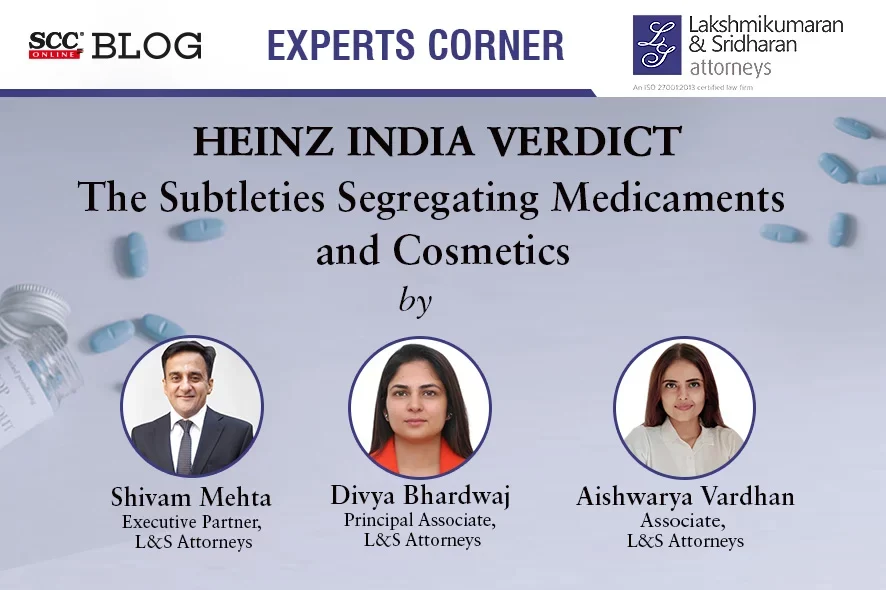Partaking in the pressing discussion regarding the classification of products as medicaments or cosmetics, the Supreme Court has ruled that “Nycil Prickly Heat Powder” is appropriately classifiable as medicated talcum powder and not as a medicament itself. This issue stems from the enactments under the General Sales Tax Acts of the States of Kerala and Tamil Nadu, respectively. These enactments embody inclusive entries that can be interpreted to engulf talcum powders under the ambit of cosmetics, even if these are medicated.
In this case, Nycil, a product which is inter alia composed of medicinal ingredients viz. chlorphenesin, zinc oxide and boric acid, was taken out of the purview of medicaments, despite being used for the specific purpose of treating prickly heat and other fungicidal skin infections. The rationale behind this judgment is based on the fact that the respective State General Sales Tax Acts contained entries which specifically included medicated talcum powder in the rubric of cosmetics.
This judgment does not consider the essential principles which have evolved over time through various decisions in the Indian jurisprudence, which lay down the touchstones that aid in the classification of products having both medicinal and cosmetic properties. However, it bore more significance on the specific and inclusive language of the entries in the statutes.
Consequently, this ruling poses a larger question regarding its applicability in the GST regime, where such classification issues have become permeative.
It may be noted that the principles regarding classification of a product as a medicament have evolved over the course of time in the erstwhile tax regime (central excise law) through several judicial precedents. These judicial precedents have scrutinised the complex language of general explanatory notes which explain the scope of medicaments and cosmetics and have thereby concluded similar products as medicaments under the central excise law.
Some of the principles laid down by court which are relevant to classify the product as medicament are as follows:
- Substantial therapeutic or prophylactic properties: These properties differentiate a medicament from any other product. A product with nil or mere subsidiary therapeutic or prophylactic properties may not be regarded as a medicament.
- Common parlance test: It has to be considered how a product will be perceived by the consumer in the common parlance i.e. whether the common man perceives the product as a medicine or not.
-
Care versus cure: It has been time and again held that if the primary function of a product is “care” and not “cure”, then it cannot be regarded as a medicament. A medicament is understood to be consumed to treat a specific ailment.
The cases enunciating the foregoing principles have relied heavily on the general and chapter notes borrowed from the customs framework. In fact, there exists various Supreme Court judgments in the erstwhile tax regime, which have classified prickly heat powders as medicaments, based on the foregoing principles.
Now coming to GST regime, there are advance rulings which have relied on the chapter notes which specifically exclude the products having certain therapeutic and prophylactic properties, from the bracket of medicines, thereby making them taxable at a higher percentage.
Therefore, a doubt may arise whether based on such advance rulings and the decision in Heinz India1 case, can someone contend that similar products must be classified as cosmetics and not medicaments.
It may be noted that the rationale behind the contrary view given in Heinz India2, which has been acknowledged in the judgment itself, is that the issue in this matter emanated from the general Sales Tax Acts of the respective States and these respective State Acts do not have general or chapter notes, to take support from. Here, it is pertinent to mention, the GST goods rate notification specifically states that the section and chapter notes and the general explanatory notes of the First Schedule of the Customs Tariff Act, 1975, shall apply to the interpretation of this notification as well. Clearly, these notes have a great deal of prominence in the GST regime.
Further, under GST, the tariff entries, although provide different brackets for medicaments and cosmetics, do not provide specific inclusive headings for “medicated talcum powder” or the likes. This indicates that the intention is to classify the products subjectively. Therefore, for classifying products for the levy of GST, the aforementioned principles, the harmonised system of nomenclature (HSN) explanatory notes and the individual properties and purported use of the product, have to be holistically taken into account.
Considering the diverging views as discussed above, one may wonder whether the emergence of views different from the already settled principles will have an impact on the GST regime.
Pursuant to the Heinz India3 judgment, the classification of products having both medicinal and cosmetic properties can invite questions from the authorities. Hence, it has to be seen whether one will have to go through the test of courts again or whether the scenario in the GST regime will remain impervious to this change.
All in all, one must be careful while approaching the classification of products of a similar nature. And for this, recourse must be taken to all the supporting limbs of the statute i.e., the notes, the exclusions, and the relevant judicial precedents, before concluding on correct classification as medicaments or cosmetics.
† Executive Partner, Lakshmikumaran & Sridharan Attorneys.
†† Principal Associate, Lakshmikumaran & Sridharan Attorneys.
††† Associate, Lakshmikumaran & Sridharan Attorneys.
1. Heinz India Limited v. State of Kerala, 2023 SCC OnLine SC 561
2. Id.






